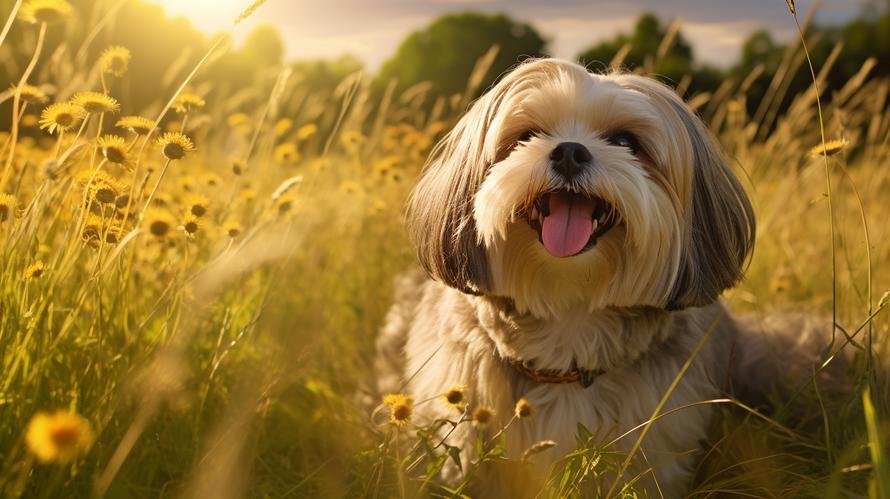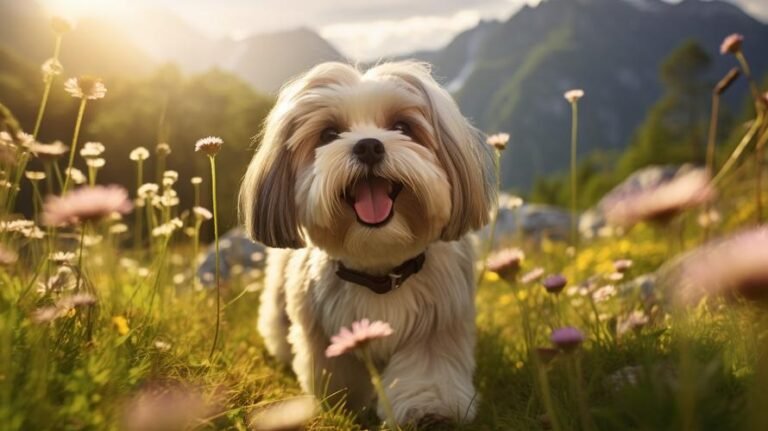“Majestic and exotic, the Lhasa Apso, an ancient breed that hails from the Himalayan Mountains of Tibet, certainly has an air of mystery surrounding it. Often portrayed as the small but mighty underdog in movies and cartoons, they are known for their lionhearted courage. However, the question about their aggression often perplexes many keen dog lovers. Are these petite pups like tiny samurai, ready to pounce at a moment’s notice? Or are they more like fluffy Zen masters, ruling their realms with calm and grace? Let’s dive into understanding the enigmatic temperament of this amazing breed.
A little known fact is that the Lhasa Apso was originally bred to serve as a sentinel in Tibetan palaces and monasteries. They were considered sacred, believed to be earthly embodiments of mythical Tibetan guardian lions. Possessing the heart of a lion, these dogs are innately protective, which explains their willingness to jump into the danger zone if they perceive a threat.
However, it’s crucial not to confuse a Lhasa’s inherent alertness with unwarranted aggression. We need to clarify the misconception between aggression, bad behavior and a Lhasa’s instinctual protective nature. A Lhasa may appear ‘aggressive’ when it merely reacts to an unfamiliar or provoking situation.
Lhasas are by no means aggressive in the generally understood sense of the word. Yes, they do have a heightened sense of alertness, a trait necessary for their survival and evolution as a breed in the challenging Tibetan terrains. But an aggressive dog? Far from it. Lhasas are, in fact, genial, friendly, and known for their love and loyalty towards their human companions.
Like any dog though, a Lhasa Apso isn’t a blank slate. They have some inherent personality traits due to their breeding history. But, their behavior is greatly influenced by their upbringing, training, and environment too.
Sociability and temperament matter in any breed, and Lhasa Apsos are certainly no different. It’s important for owners to socialize their Lhasa from an early age, exposing them to different environments, people and pets. This helps the dog comprehend the world better and respond harmoniously rather than defensively. A well-socialized Lhasa Apso seldom shows unnecessary aggression.
Training plays a significant role too. Remember that this is a clever, independent-minded breed with a bit of a stubborn streak. Consistent, age-appropriate training based on positive reinforcement can help mould a Lhasa into a well-rounded, sociable, and non-aggressive companion.
If you suspect your Lhasa Apso may be developing aggressive tendencies, don’t panic and label your dog as ‘bad’ or ‘aggressive’. Evidence suggests that much of this activity could be due to fear or frustration. Stand back, assess and understand what circumstances trigger this reaction and try to mitigate them.
An interesting point to note is that Lhasas have excellent memories. They keep track of ‘good’ and ‘bad’ experiences, and their responses may be based on these memories. So, patience, love, and understanding will go a long way in shaping these canines into the perfect house companions.
Eating habits and diet can affect a dog’s behavior too. Ensure that your Lhasa is fed a balanced diet and has a regular meal routine. An abrupt change in your dog’s food habits can often lead to anxiety, which can be misinterpreted as aggression.
In short, Lhasa Apsos aren’t aggressive dogs; they are alert, protective, but also lovable and devoted. Their ‘aggression’, if any, often stems from misinterpreted protective instincts, and this can be remedied with appropriate socialization, training, and care.
So, the next time you see a Lhasa Apso, remember that beneath that layer of lush fur, charming expressions, and an endearing gait is a fiercely loyal, loving, and relatively non-aggressive companion, carrying within it a chip of the ancient and majestic Himalayas. And if you happen to own one, congratulations! With the right care, understanding, and training, you have a best friend for life. You’ve got your very own, live-in Zen master!”



